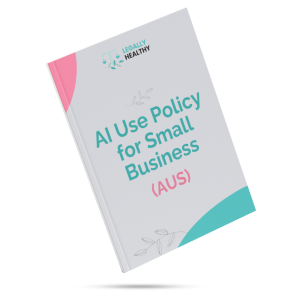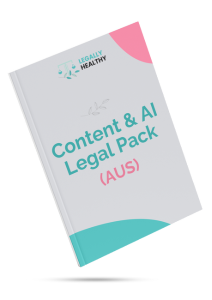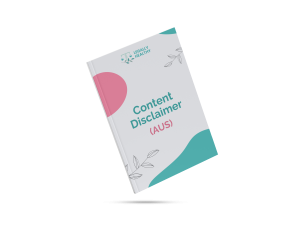If you’re a health practitioner promoting products online (or anywhere public), the Therapeutic Goods Advertising Code has strict rules on testimonials and endorsements. Breaches are easy—and expensive. Here’s what actually counts, what’s banned, what’s still okay in clinic, and safe ways to educate without crossing the line.
Important note on testimonials (AHPRA vs TGA)
Under the TGA Advertising Code, practitioners cannot endorse or give personal testimonials about therapeutic goods in advertising to the public. Separately, if you are AHPRA‑registered, the National Law prohibits using patient testimonials to advertise a regulated health service. These are different regimes: this article focuses on therapeutic products (TGA), but we’re flagging the AHPRA rule so you don’t mix them up.
What counts as “advertising”?
Under the TGA framework, advertising is anything (words, images, video, logos, links) intended—directly or indirectly—to promote the use or supply of a therapeutic good. The Code applies to advertising to the general public (websites, socials, emails, posters, podcasts, public brochures, etc.).
The big red line: practitioner endorsements & testimonials
Advertisements must not include testimonials or endorsements from current or former health practitioners/health professionals/medical researchers, people representing themselves as qualified to diagnose/treat disease, hospitals/healthcare facilities (and their staff), government bodies, or organisations representing health practitioners or consumers.
In plain English: If you’re a practitioner, you cannot publicly endorse Brand X probiotics, “my favourite magnesium,” or appear as a practitioner giving an on‑record thumbs‑up for a product in an advertisement.
Paid or gifted = marketing: Consumer testimonials can’t be given in exchange for valuable consideration (money, gifts, discounts, free product, ambassadorships, etc.). If someone is paid or gifted, their testimonial can’t be used.
User‑generated content and comments on your channels count as part of your advertising. You’re responsible for moderating/removing non‑compliant reviews or endorsements that relate to therapeutic goods.
So… can I recommend specific brands in a consultation?
Yes—clinical recommendations made privately to an individual patient during a one‑to‑one consultation are not “advertising to the public”. The Code targets public promotions; private clinical advice is outside scope. If you publish or share that advice publicly to promote a product, it becomes advertising.
Tip: Keep brand‑specific recommendations inside your patient care pathway (consult notes, scripts, private dispensary links). Don’t repurpose them as public marketing.
What You CAN Do (and Safe Ways to Do It)
1) Teach, don’t promote: general, non‑brand education
You can share neutral, educational info about health topics or ingredients (e.g., “Magnesium contributes to normal muscle function and helps reduce tiredness”) if a reasonable consumer wouldn’t see it as pushing them to use/buy a product. Avoid brand names, product images, retailer links, discount codes, “shop now”, or implied calls to buy. If it nudges purchase or use, it’s likely advertising and the Code applies.
Safe phrasing example:
“Magnesium plays a role in muscle relaxation and sleep quality. Food sources include leafy greens, nuts and seeds.” (No brands, no links, no CTAs.)
2) Keep brand‑specific advice inside the consult
One‑to‑one clinical recommendations to an individual patient (including specific brands) aren’t “advertising to the public”. Keep these private—consult notes, scripts, or direct messages to the patient—not in public posts.
3) Advertise your services (not the goods)
You can promote your consultations, programs, and assessments. Just don’t mention (or hint at) prescription‑only items or specific therapeutic goods used in the service. Avoid pairing service ads with product claims or product links.
4) Be an affiliate/ambassador for non‑therapeutic products
TGA rules apply to therapeutic goods. If an item is not a therapeutic good (e.g., a yoga mat, blender, journal), the TGA Code doesn’t apply—though you must still follow general advertising law (clearly disclose #ad/#affiliate under Australian Consumer Law). Watch grey zones: some “cosmetics” are actually therapeutic goods depending on claims (e.g., primary sunscreens). If claims suggest the product will prevent, diagnose, cure or treat a condition, treat it as a therapeutic good and follow the Code.
5) Share “disease education” content—carefully
General condition education (symptoms, when to see a practitioner, lifestyle tips) is fine. It crosses into advertising when the content—directly or indirectly—promotes the use or supply of a therapeutic good (including category nudges like “sleep gummies” even without brands). Keep it unbiased, avoid product cues, and don’t pair with shop links.
6) Moderate your comments and UGC
If testimonials/endorsements appear on your channels (including comments) and relate to therapeutic goods, you’re responsible for compliance—remove non‑compliant posts and don’t incentivise reviews.
Quick Do/Don’t Guide for Practitioners
DO (generally okay)
- Give brand‑specific product advice privately to a patient in a consult or follow‑up message.
- Advertise your health services (appointments, assessments, programs) without tying them to product claims or specific goods.
- Share neutral product/ingredient education that does not encourage purchase or use (no brands, links, or CTAs).
DON’T (likely non‑compliant)
- Post “As a practitioner, I recommend Brand X for sleep”—even if unpaid. Practitioner endorsements in ads are prohibited.
- Repost a client’s rave review naming your favourite supplement on your clinic Instagram (it becomes part of your ad).
- Offer freebies/discounts in exchange for reviews or UGC about therapeutic goods (that’s “valuable consideration”).
- Link your ad to a page that contains endorsements/testimonials you couldn’t legally include yourself. Linked material counts as part of your ad.
Bottom line
- Inside consults: brand‑specific advice is okay (it’s not public advertising).
• In public: practitioners cannot endorse therapeutic goods or use testimonials from prohibited sources. If it promotes a product to the public, assume the Code applies.
References & further reading
- TGA – Applying the Advertising Code (overview)
- TGA – Testimonials and endorsements in advertising (Part 6 guidance)
- TGA – Understanding activities that represent advertising
- AHPRA – Advertising a regulated health service: use of testimonials
General information only, not legal advice. Always check the latest TGA guidance and the Therapeutic Goods (Therapeutic Goods Advertising Code) Instrument 2021 before publishing content.
Note for AHPRA-registered practitioners: the National Law’s testimonial ban for health service advertising applies alongside the TGA Code’s product rules.
P.S. Want ready‑to‑use website and marketing legals tailored to health businesses? Visit Legally Healthy and Shop Templates.
Featured Products
-
AI Use Policy for Small Business (AUS)
$97.00 Incl GST -
Content & AI Legal Pack (AUS)
$139.00 Incl GST -
Content Disclaimer Template
$37.00 Incl GST



